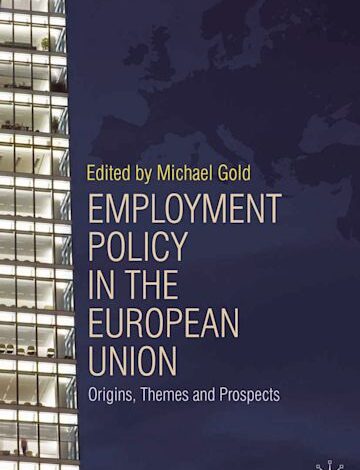Introduction

In the European Union, official employment refers to those who are employed in accordance with the laws and regulations of their respective countries. This includes full-time, part-time, and temporary workers who are paid wages or salaries for their work. Official employment is an important indicator of the health of the economy and the overall well-being of the population.  Ну а подробнее Вы можете почитать на сайте: https://careergo.eu
Ну а подробнее Вы можете почитать на сайте: https://careergo.eu
Types of Official Employment
Official employment in the European Union can be classified into various types, including:
Full-time Employment
Full-time employment refers to individuals who work a standard number of hours per week, typically 35-40 hours. These employees are entitled to benefits such as paid vacation, sick leave, and retirement benefits.
Part-time Employment
Part-time employment involves individuals who work fewer hours than full-time employees, usually less than 35 hours per week. Part-time workers may or may not be entitled to the same benefits as full-time employees, depending on the laws of their country.
Temporary Employment
Temporary employment refers to individuals who are hired for a specific period of time or for a specific project. These workers may be employed on a fixed-term contract or a seasonal basis.
Self-Employment
Self-employment involves individuals who work for themselves, either as freelancers, consultants, or small business owners. Self-employed individuals are responsible for paying their own taxes and may not be entitled to the same benefits as traditional employees.
Agency Work
Agency work involves individuals who are employed by a temporary work agency and hired out to work for a client company. These workers are typically hired for short-term assignments and may not receive the same benefits as permanent employees.
Regulations and Protections
Official employment in the European Union is governed by a set of regulations and protections designed to ensure fair treatment and equal opportunities for all workers. These regulations include:
Minimum Wage Laws
Many countries in the European Union have laws that establish a minimum wage that employers must pay their employees. This is intended to prevent exploitation and ensure that workers are paid a fair wage for their labor.
Working Time Directive
The Working Time Directive sets limits on the number of hours that employees can be required to work per week, as well as mandatory rest periods and paid vacation time. This directive is designed to protect workers’ health and well-being.
Equal Treatment Laws
Equal treatment laws prohibit discrimination in the workplace based on factors such as gender, age, race, religion, or disability. Employers must ensure that all workers are treated fairly and have equal opportunities for advancement.
Health and Safety Regulations
Employers in the European Union are required to provide a safe and healthy work environment for their employees. This includes measures to prevent accidents, injuries, and exposure to harmful substances.
Challenges and Opportunities
While official employment in the European Union is generally well-regulated and protected, there are still challenges that need to be addressed. These include:
Unemployment
Despite regulations and protections, unemployment remains a significant issue in many EU countries. This can be due to a variety of factors, including economic downturns, technological advancements, and changes in industries.
Precarious Work
Some workers in the EU are employed in precarious conditions, such as temporary contracts, low wages, or lack of benefits. These workers may be more vulnerable to exploitation and have less job security than traditional employees.
Globalization
Globalization has led to increased competition and outsourcing of jobs, which can impact official employment in the EU. Companies may seek to cut costs by moving production to countries with lower labor standards and wages.
Automation
Advancements in technology, such as automation and artificial intelligence, are changing the nature of work in the EU. While these technologies can increase efficiency and productivity, they also pose a threat to traditional jobs and require workers to adapt to new skills and roles.
Conclusion
Official employment in the European Union is an important indicator of the health of the economy and the well-being of the population. While regulations and protections are in place to ensure fair treatment and equal opportunities for all workers, challenges such as unemployment, precarious work, globalization, and automation continue to impact the labor market. It is essential for policymakers, employers, and workers to work together to address these challenges and create a more sustainable and inclusive employment environment.
